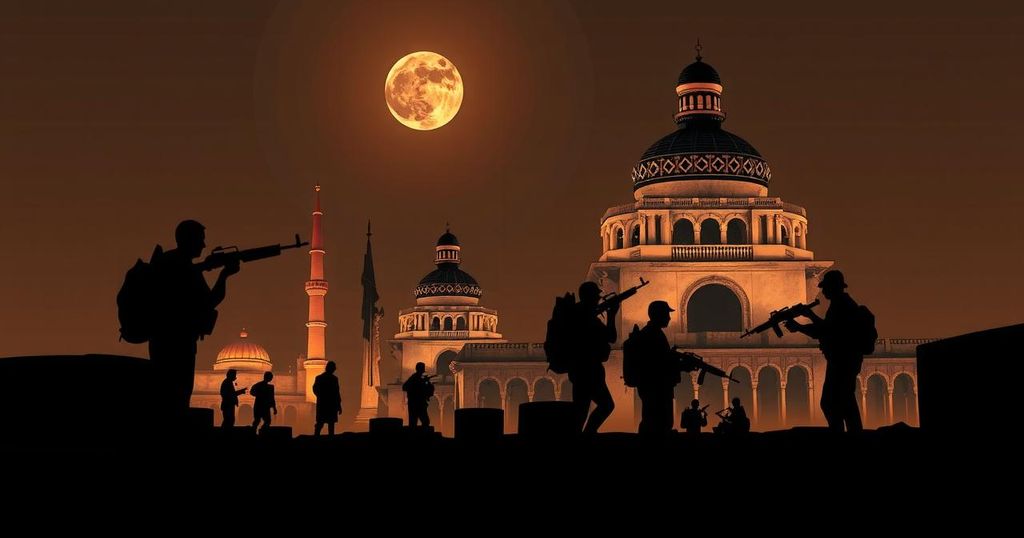Mali Declares Control Over Bamako Following Insurgent Assault
Summary
Mali reported that its capital, Bamako, is under control after insurgents attacked a gendarmerie training school and other sensitive areas early Tuesday morning. Gunfire was heard across the city, but the military has since stated that they have repelled the attackers. Security forces advised citizens to avoid targeted locations, and concerns were raised regarding the impact of international arms transfers contributing to local terrorism. This situation reflects the ongoing threats facing Mali amidst its recent shift towards military cooperation with Russia.
On Tuesday, Mali’s military administration reported that the capital city, Bamako, remains secure following a morning insurgent attack on several critical locations, including the gendarmerie training school. The assault involved a coordinated attempt from armed personnel to breach the Faladie gendarmerie school, which is located in the southeastern suburbs close to the main international airport. Gunfire was heard around 05:30 GMT, prompting residents on their way to morning prayers to retreat due to the danger posed by the gunfire. The military confirmed that mopping-up operations are currently in effect and has urged citizens to steer clear of the affected areas and await further directives from authorities. The military administration asserted that it successfully repelled the attackers, reassuring the public that they could return to their daily routines. Amidst the unrest, the closure of the airport was also noted by security sources. This incident highlights the ongoing security challenges faced by Mali, a nation that has experienced a persistent insurgency for over a decade. Recently, Malian officials have expressed concern regarding the influx of weapons supplied to Ukraine, which they argue contribute to terrorism in the Sahel region. These fears were articulated by Malian Ambassador to the United Nations, Oumar Daou, who warned that the supply of weapons has exacerbated the terrorist threat in the area. Moreover, the Mali government has sought alliances for military support, notably shifting its cooperation toward Russia to combat the insurgency that has affected not only Mali but also its neighboring states, Burkina Faso and Niger. The Malian administration severed diplomatic ties with Ukraine earlier this year after attributing a terrorist attack that resulted in casualties among Malian and Russian personnel to Ukrainian involvement. Overall, Mali’s situation remains precarious as efforts to stabilize the country continue amid an ongoing struggle against insurgent forces.
Mali has been grappling with a persistent security crisis exacerbated by a decade-long insurgency marked by extremist violence. This turbulence is compounded by regional instability in the Sahel, where militant groups have exploited the weak governance structures. The French military intervention, aimed at quelling the insurgency, has not yielded the desired results, prompting the Malian authorities to seek alternative defense partnerships, notably with Russia. Recently, Mali officials have vocalized concerns regarding the repercussions of conflicts elsewhere, particularly the flow of weapons from Ukraine, which they claim fuels local terrorism. These geopolitical dynamics illustrate the complex interplay of international relations and local security challenges in the Sahel region.
In conclusion, the incident in Bamako underscores the volatility of Mali’s security situation as the government grapples with insurgent threats. The swift military response demonstrates the capital’s current control yet highlights an ongoing struggle against extremism fueled by international arms distribution. Furthermore, shifting alliances, particularly towards Russia, indicate Mali’s strategic recalibrations in its fight against terrorism, reflecting broader geopolitical tensions that influence regional stability.
Original Source: english.almayadeen.net







Post Comment